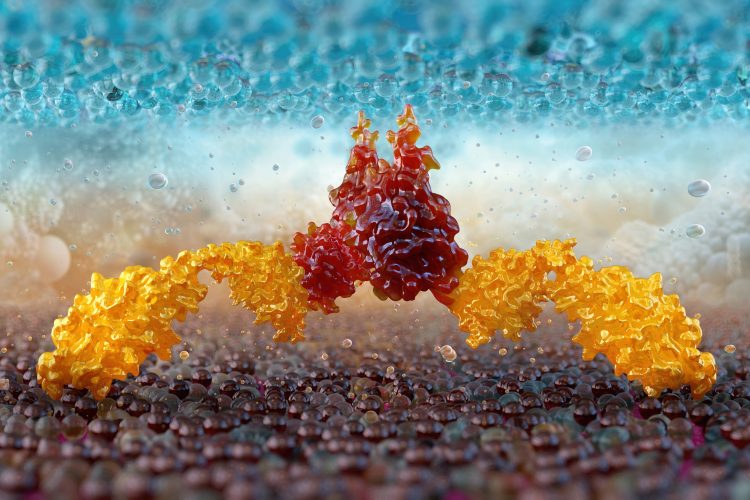Herpes virus protein boosts T cell power against cancer
Posted: 3 June 2025 | Drug Target Review | No comments yet
Researchers at the University of Michigan have engineered a herpes virus protein to enhance T cell survival and function, offering a new strategy to strengthen cancer immunotherapy.


Researchers at the University of Michigan have discovered that a virus traditionally viewed as a threat might become a powerful ally in the battle against cancer. The herpes virus, specifically a variant that infects squirrel monkeys, has shown promise in helping scientists overcome a major hurdle in cancer immunotherapy.
The challenge: tumours that turn off the immune response
Immunotherapy, particularly CAR-T cell therapy, has transformed cancer treatment by harnessing the power of a patient’s own immune system. T cells, the immune system’s elite fighters, are engineered to seek out and destroy cancer cells. But within the tumour microenvironment, T cells often become overwhelmed. Harsh, suppressive conditions in the tumour can impair their ability to survive and function effectively.
The viral twist: using herpes proteins to help T cells thrive
Led by Dr Adam Courtney in the Department of Pharmacology and the U-M Rogel Cancer Center, the research team turned to herpes virus saimiri (HVS)- a virus that naturally infects T cells in squirrel monkeys. This virus has evolved powerful mechanisms to manipulate host cell biology to ensure its own survival.
Dr Courtney’s lab focused on one particular viral protein: tyrosine kinase interacting protein (Tip). They engineered a modified version of this protein that could bind to LCK, a kinase that plays a role in T cell activation, and redirect it to activate a signalling pathway that’s crucial for T cell survival, called JAK-STAT5.
STAT5: the power switch for immune attack
STAT5 is a transcription factor that controls genes involved in T cell proliferation, survival, and function. Normally, it is activated by cytokines like interleukin-2 (IL-2), which help bolster T cell activity. However, within tumours, these natural signalling cues are often absent.
By engineering the viral protein to directly stimulate STAT5 activation, the researchers found they could bypass the need for IL-2 and give T cells the boost they needed to stay functional within the hostile tumour environment.
In preclinical studies using mouse models of melanoma and lymphoma, this approach showed clear benefits. T cells modified with the engineered viral protein demonstrated enhanced survival and sustained function inside tumours, leading to improved anti-cancer responses.
A new frontier in immunotherapy
The findings open a new avenue in cancer treatment: using genetic material from viruses, which have evolved for millennia to hijack human cellular machinery, for therapeutic benefit. Rather than being a threat, herpes virus saimiri becomes a blueprint for enhancing human immune cells.
Related topics
Cancer research, Cell Therapy, Immunotherapy, Molecular Biology, T cells, Targets, Therapeutics, Translational Science, Viral vectors
Related conditions
Cancer
Related organisations
Michigan University, U-M Rogel Cancer Center








